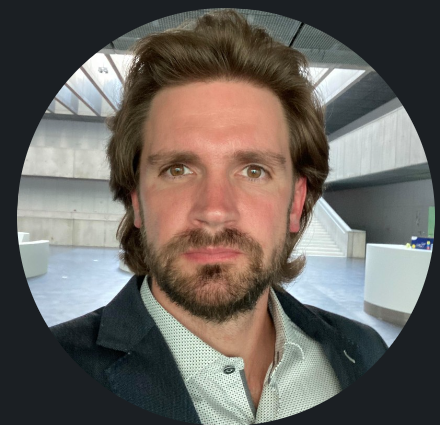Interview with doctoral researcher Rostislav Gramskopf
Next in our series of mini-interviews with fellow doctoral researchers that you can read is with Rostislav Gramskopf a doctoral researcher in Historical Sociology at FHS UK.

1. Why did you decide to study PhD and what is the area of your interest?
I went for my PhD because I was basically persuaded to do it by a friend of mine back then, with whom I was studying together at the master's level in historical sociology. Here, basically thanks to this department and the people there, the opportunity to study society and its change on a long timeline opened up for me. Today, under the supervison of Prof. Zdeněk Nešpor, Ph.D., I am studying public sociology and the non/possibility of its establishment in the Czech space. This led me to the question of value neutrality, which is linked to the sovereignty of the state. I think that this question and its reflection is and (I dare to speculate, not predict) will be crucial for society. Of course, the format of doctoral studies says otherwise. 5% of our knowledge brought to the altar must be written down and defended under strict regulations - and this is a key question especially for the doctoral student. I haven't really solved either one yet.
2. What problems and challenges does doctoral study bring, what motivates you in your work?
There are too many challenges. I think every PhD student knows them. I'm not sure, however, if people in the decisive sphere already know them. That's where I see a huge role for you. You're doing a very good job at this. I have used your help several times myself and you have always been an excellent support. I like your activity, backed up by your professional experience and reinforced many times by your humanity.
As for my motivation to study, my teaching experience of many years and also my desire to go to the things themselves and not to be afraid of factual criticism, however much I may not have been able to accept it at first, contributes strongly to this. It's actually a bit of a mix of forces; trying to get things done, learn something, get my nose punched in the process, and still get little sleep.
I may be taking it on the lighter side, but there really are a lot of these problems that PhD study brings, and the voice needs to be heard in the right places - even with the way legislation is changing. Again, I want to highlight your excellent work. It is admirable how such associations come into being. It is proof to me that our society still has the strength to resist and offer reflection (backed by good empirical data!) to the forces from above in a healthy way.
3. Why did you join CAD?
It is simple. Basically, you can understand PhD students - metaphorically; people who work really hard on their projects and try to improve the state of current /and especially future/ scholarship or, more broadly, humanities education. I see you as the best thing that can come "from below", i.e. from the real problems in the daily lives of students and future and confident scientists and scholars. You have the reach into the decisive sphere and thus a real opportunity to change things for the better - and as a sociologist would say - to bring about positive social change. Which, in fact, you are already doing. That's why I'm honoured to be part of it.
I don't have a quote after all. I wish our various branches of government knew how to listen to each other. They are the foundation of our society.
And to lighten things up; it's autumn, take Peroutka's book and go read on the forest path! :)
